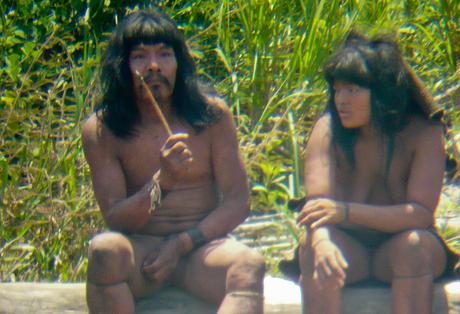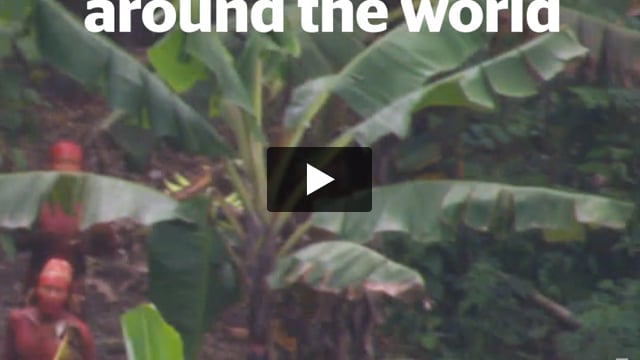Government determined to exploit uncontacted Indians’ land
May 1, 2009

This page was last updated in 2009 and may contain language which is now outdated.
Peru’s government has shown its determination to permit work on uncontacted tribes’ land by passing a law declaring oil exploitation in northern Peru a ‘national necessity.’
The law refers specifically to an area of Peru’s rainforest called Lot 67, inhabited by at least two of the world’s last uncontacted tribes. The company working there is Perenco, and Lot 67 is believed to contain the biggest oil discovery in Peru in thirty years.
The law has been passed in the immediate aftermath of a meeting between Perenco’s chairman, Francois Perrodo, and Peru’s president, Alan Garcia. At the same time, Indigenous protesters have blocked a major Amazon tributary, the Napo river, in order to prevent Perenco and other company boats from passing, mainly in protest against other government laws making it easier for companies to take over Indigenous land. According to reports, at least one Perenco boat has broken through the blockade.
Perenco has said it will invest $2 billion in Lot 67 and Peru’s government hopes it will transform the country’s economy, moving it from a net importer of oil to a net exporter.
The law was passed by Supreme Decree this week. A Supreme Decree is issued by the president and ministers and does not need to be voted by parliament.
Uncontacted Indians are exceedingly vulnerable to any form of contact because they do not have immunity to outsiders’ diseases. Contact with Perenco workers would almost certainly decimate them.
Watch Survival's short film 'Uncontacted Tribes'



